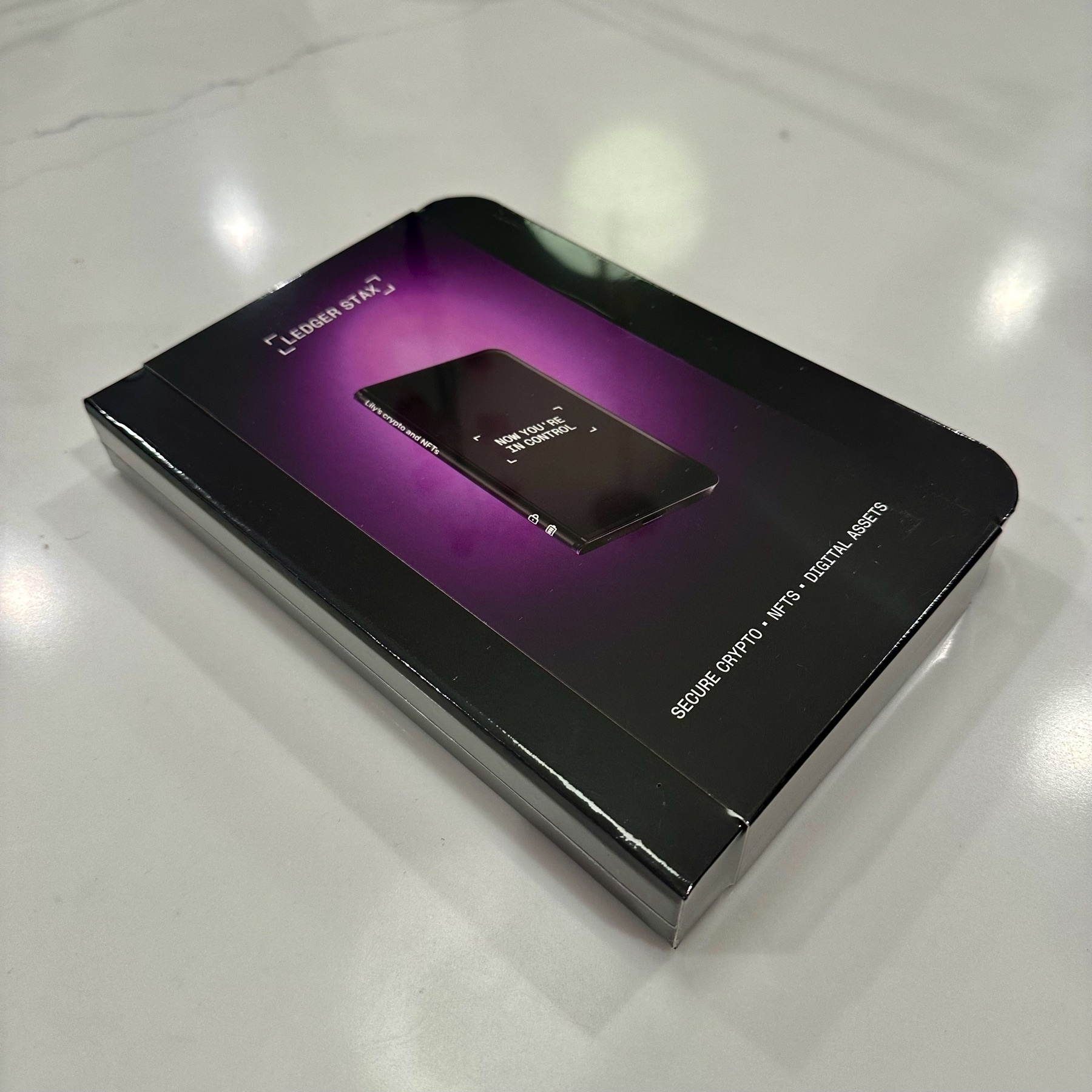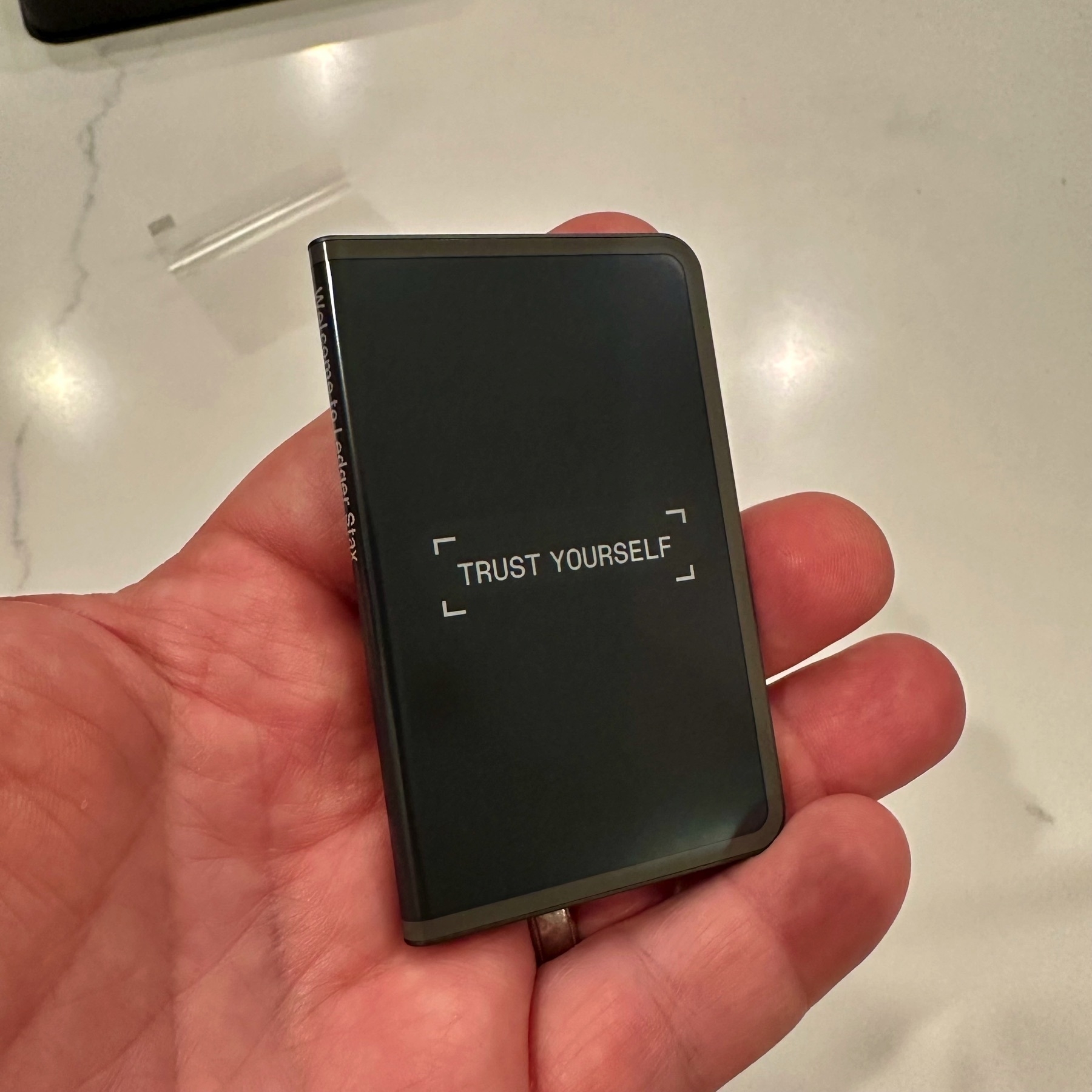Knee high by the 4th of July? ✅

Transferred the pork butts to the Big Green Egg after 21 hours on the Sous Vides. Time for smoke and developing bark.

Happy Birthday America! 🇺🇸 Hope everyone has a great 4th of July! 🎆

“Remember to leave beer and guns out or Kid Rock won’t bring you fireworks tonight.” — Dylan
🎅
Break in the rain and everyone jumping in the pool! 💦

Having Hulk Hogan’s new Real American Beer — can there be a better beer for 4th of July! 🍻

My cousin @jellisatc posted his first new column — Making Hay — since I helped him get his website up and running. He’s also using micro.blog newsletter capabilities so you can subscribe and get them twice a month. Recommended!
Fiber Installed at Cabin
I met with Bevcomm on July 1 2023 to give them the go ahead to install fiber at our cabin. They thought it would take about a year and today — one year and two days later — it was installed and activated! Bevcomm sent two technicians out and everything went very smooth.
I had made several upgrades to the network infrastructure in preparation. I don’t have ethernet here and was using ethernet-over-power adapters before with Eero infrastructure.
I knew I wanted to switch everything to UniFi. I use UniFi at home and am very pleased with it. I decided to use the existing coax wiring for the backbone using MoCa adapters. Each of the four MoCa adapter then has a little 4-port switch. I’ve also got 2 WiFi 6 LR access points and a UniFi U6 Mesh access point that is installed outside. I’ve now got direct line-of-site for my external network devices. External WiFi signal is way better!
Today the last part clicked in with the fiber getting turned on. I provisioned 500 Mbps service. I didn’t think full gigabit made sense. Speeds look great and response times are very snappy.

Importing 240 Word Documents to Micro.blog
This weekend I helped get my cousin Josh setup Rambling Josh, a new website to host the column he’s been writing for 20 years. He knew I used micro.blog and was game to use that. I suggested he get a domain name at NameCheap which he did. I got in and twiddled some settings and I had the site up and running easy enough.
The challenge here was going to be the content. He had shared some documents with me earlier and it seemed like he wrote each column in Microsoft Word. They were very minimal on formatting (like almost none) since the target is a printed newspaper. In the end he had 240 Word documents, each representing an article, that we needed to get into Markdown and posted to the Micro.blog API.
I figured there were two steps:
- Convert these files to Markdown
- Post the Markdown to Micro.blog
Converting to Markdown
I’ve used Pandoc for this kind of thing before so knew it should handle this pretty easily. I tried with one file passing the source DOCX file and it did good with the MD file. However, it was word wrapped at 72 characters. I did a similar use of Pandoc when I imported content into my website at one time and didn’t realize the word wrapping was happening and now I have hundreds of posts that are word wrapped at 72 characters. In reality, nobody but me ever will see the Markdown so it has no impact. But it still bugs me. I found --wrap=none and was happy with the output.
A quick bash loop did the rest:
#!/bin/bash
for FILE in docx/*.docx; do
# Extract the filename without the extension
filename=$(basename -- "$FILE")
filename="${filename%.*}"
echo "Processing $filename...";
pandoc -s "$FILE" \
-t markdown \
-o "md/$filename.md" \
--wrap=none
done
Posting to Micro.blog
So now I had a new directory with 240 Markdown files. First step done. Luckily Josh used a standard approach to each document. The files had names like:
The Wall 3-20-2019.md
Coach2-2-11.md
Boxed Out 1-18-2017.md
Fantasia 11-15-2017.md
Brooklyn Bound 10-16-2019.md
Memories 6-17-2020.md
Genius 4-19-17.md
Mirror Mirror 4-18-2018.md
Floored 3-6-2019.md
Good Man7-19-2017.md
So I had a fairly good way to get a title as well as a publish date from the filename.
Inside of each file he had the title, byline, and date as well at the top of each article. These had less conformity so I decided to ignore those and just use the filename for metadata.
As I put each article into Micro.blog I wanted to:
- Make sure the title was set right.
- Make sure the publish date was the original publish date, not now.
- Add a static category.
I started to whack away at this script and then decided to ask my friend ChatGPT 4o to give me a hand. I could have written what it helped me with, but it did it about 10x faster. It also had an easier time frankly handling the fact that not all the years had 4 digits. 🤓
#!/bin/bash
# Your Micro.blog token and API endpoint
MICRO_BLOG_TOKEN="SECRET TOKEN HERE"
API_ENDPOINT="https://micro.blog/micropub"
# Directory containing the markdown files
MARKDOWN_DIR="md"
# Function to post a markdown file
post_to_microblog() {
local file="$1"
local filename=$(basename -- "$file")
# Extract the title (all characters before the date)
local title="${filename%%[0-9]*}"
# Extract the date part (all characters from the first digit to the last dot)
local date_part=$(echo "$filename" | grep -oE '[0-9]{1,2}-[0-9]{1,2}-[0-9]{2,4}')
local month=$(echo "$date_part" | cut -d'-' -f1)
local day=$(echo "$date_part" | cut -d'-' -f2)
local year=$(echo "$date_part" | cut -d'-' -f3)
# Format the year to 4 digits (assuming 20xx)
if [ ${#year} -eq 2 ]; then
local year_formatted="20$year"
else
local year_formatted="$year"
fi
# Format the date to Y-M-D
local timestamp_formatted="$year_formatted-$month-$day"
# Set the time to midnight Central Time (CT)
local timestamp_ct="${timestamp_formatted}T12:00:00-06:00"
# Read file content and remove the first three paragraphs
local content=$(awk 'BEGIN{RS="";ORS="\n\n"} NR>3' "$file")
# Post to Micro.blog
curl -X POST "$API_ENDPOINT" \
-H "Authorization: Bearer $MICRO_BLOG_TOKEN" \
-H "Content-Type: application/x-www-form-urlencoded" \
-d "h=entry" \
-d "name=$title" \
-d "published=$timestamp_ct" \
-d "category[]=Ramblings" \
-d "content=$content"
}
# Iterate over markdown files in the directory
for file in "$MARKDOWN_DIR"/*.md; do
if [[ -f "$file" ]]; then
echo "Processing $file..."
post_to_microblog "$file"
echo "\n"
fi
done
I was impressed that ChatGPT had no issue knowing the signatures for the micro.blog API. It isn’t a super common API but it didn’t miss a beat. The regular expression on the filename was the same approach I would have used. I always forget about cut but it was a smart use to pull apart the date. The part I would have struggled with was ignoring the first three paragraphs (not necessarily lines) in the file itself. These had the title, byline, and date. I just wanted to ignore it. I know a little awk but not enough to have it do that for me.
I ran this and voila I had 240 blog posts from all those Markdown files. I was honestly surprised it didn’t take me longer. ChatGPT probably saved me a couple of hours of banging around at different approaches.
There were a couple of bugs.
- Articles that contained an ampersand caused problems with
curl. The content after the first ampersand was lost. There were only eight or so articles that had that (thanksgrep) so I remedied that by hand. - I didn’t like what Pandoc did with superscript. Because Josh had written these in Word every occurence of 7th or 20th had superscript. There were a number of ^ that needed to get erased. I used MarsEdit to both find the posts that had that, and do a quick find and replace with nothing. I wish that was a batch operation in MarsEdit but you have to do it one-by-one, but it is fast.
- Pandoc also littered a bunch of backslash characters attempting to do some formatting. I had to fix those by hand too.
It is entirely possible if I spent more time with the Pandoc testing I could have avoided the last two. Pandoc doesn’t have command line flags for those but it does have multiple Markdown targets and some of them may have made more suitable Markdown for me. Either way it only took about 10 minutes to clean up thanks to MarsEdit.
Wrapping up
I was pretty happy that I go this all going and even completed in just a couple of hours. The rest of the archive will be less easy to get, but with this we got a great start!
Rambling Josh
My cousin Josh Ellis has been writing a twice-monthly column in the Burke County Tribune for nearly 20 years. He has been writing old school, publishing in an actual printed newspaper all those years. He’s written over 450 columns! Over the years I’ve been able to read some of his writing but not much because of the limited distribution. I’ve always wished I could read them all.
I had recently been chatting with Josh. He shared a couple of columns he had written about Ireland and thought I may like them after our recent trip — Lucky Man and Friends and Children. I thought they were great and told him that if he ever wanted to get a website running for his column on I would be happy to help.
About a week later he pinged me asking how to start and shortly after Rambling Josh was up and running! 1
He sent me 240 of his columns and I imported them into his site. Plenty to read, but only about half of all of them. We are going to keep working to add more. I also made sure to get his first column Shadow Puppets up. I hope to be able to help him get them all online. Some of them will have to be OCR off of clippings he has saved.
It was awesome to help Josh get this going. I can now get his new column in my feed reader. He also has a subscribe option so you can get it via email. Plus, his collection of columns will now be available for all. And even better, the open web gets a great site. I joke that when a blog is started an angel gets their wings. 🪽
He is a really good writer. There is wit and personality in all of it. Check out Rambling Josh and add to your reader. He may get an email subscription option going too.
PS: The “Surprise Me” button is a good way to read random columns. Just keep clicking.
Update: We’ve added another 80 columns, for a total of 320 now!
-
Josh’s column has always been titled “Ramblings” ↩︎
I find it incredible that Pump 1 in our sump pump system has run 324,989 times. Pump 2 has only run 15,179 times. It also indicates that Pump 1 flow rate is 59 GPM and Pump 2 is 81 GPM. I would guess the extra 309,810 times it has run has reduced its rate a little.

We decided to have dinner at Crisp & Green last night so that we could see Mazie at work! She was surprised when we showed up. Delicious bowls! 🥗

Lake Cam Properly Mounted
Last week when I repositioned one of the UniFi G4 Cameras so that I could keep an eye on the flooding and the pontoon I didn’t consider raccoons getting interested in the camera. I had just put it on a 2x4 on the ground. The 2x4 was to keep it from being on any pooled water. That didn’t even make it 24 hours.
Luckily I had a yard stake and some scrap wood. Problem solved! Additionally I’m now looking closer to eye height instead of having a view from the ground. Stay away raccoons! 🦝
Wondering about all that green stuff on the water? That is floating algae that collects in the little alcove that our dock sits.


Cannon Lake Flooding Update
We stopped at our cabin yesterday to check on the flooding on Cannon Lake. Lucky for us the only real situation we are managing is our pontoon and dock. The water was down a few inches from last week but still very high. The lake association also sent a warning that the water may be contaminated due to all the flooding upriver from us.
I also replaced the sump pump discharge line. Usually the sump pump there doesn’t run often but it is running every minute to two now and I noticed the discharge line had several holes and it was spraying water all over the place. I figured with all the flooding I may not be able to find a replacement but Faribault Ace Hardware had our back. Our sump pump didn’t have a threaded connector but I was able to make it work and got the new line in place.
We drove along Cannon Lake Trail and the water had receded a few inches but still a lot of flooding and even more debris after a week. We also looped through Dodge Court and most of the really big houses there were still okay but there were a few that were badly flooded. In Warsaw I was surprised that bridge that crosses the Cannon River on Farwell Ave was still open. I thought it ould be flooded too. The Channel Inn was not flooded, but Doc’s Dock was flooded and several of their permanent RV spots were as well.

It is fun to think back to 17 years ago right now, tweeting on iPhone launch day, when I got my hands on the original iPhone. What a journey! 🚀
Lovely stroll with Lucky this evening. A blooming Northern Catalpa, Minnehaha Creek brimming with water, and Asiatic Lilies.



POAP 7147325 at SPS TechJam 2024 - Found It!.

POAP 7147324 at SPS TechJam 2024 - Attendee.

Ledger Stax Arrived
This weekend I received my Ledger Stax crypto wallet! I pre-ordered this in December 2022 because I loved hearing how Tony Fadell, who designed the original iPod, approached designing this. The device is meant to look like a book and you can customize the spine and cover however you wish to help see what is “inside” the wallet. I unboxed it tonight.
The packaging is well done but very big for such a small device. The box it comes in is the same book shape as the Stax itself, and then the Stax is simply tucked away inside. Very nicely done and all simple cardboard so very recyclable.
I didn’t set it up yet, but I did power the Stax up and it makes a nice twinkle sound and the screen comes to life. It is a touch sensitive screen and is surprisingly responsive when you touch it. Very cool.
I have a Ledger Nano X already so I’m going to need to sit down and figure out how I want to configure and setup the Stax. I actually pre-ordered two of these so am expecting another one to show up soon.





Summer Challenge: Create a Counter using Shortcuts
This post is part of the Summer Challenge Collection, a collection of tasks or projects for our kids to do over the summer.
For this challenge you will create a simple counter to keep track of any number of events that you might want to track. You could use this to keep track of the number of books you’ve read, the number of times you did a certain activity, or how many summer challenges you’ve completed.
The counter must be created using Shortcuts and Data Jar. The shortcut should have at least these functions:
- Increment a counter
- Decrement a counter
- Create a counter
- Remove a counter
Once you have created the Shortcut then write a post about how you created it, and include a link to install the shortcut via the share sheet.